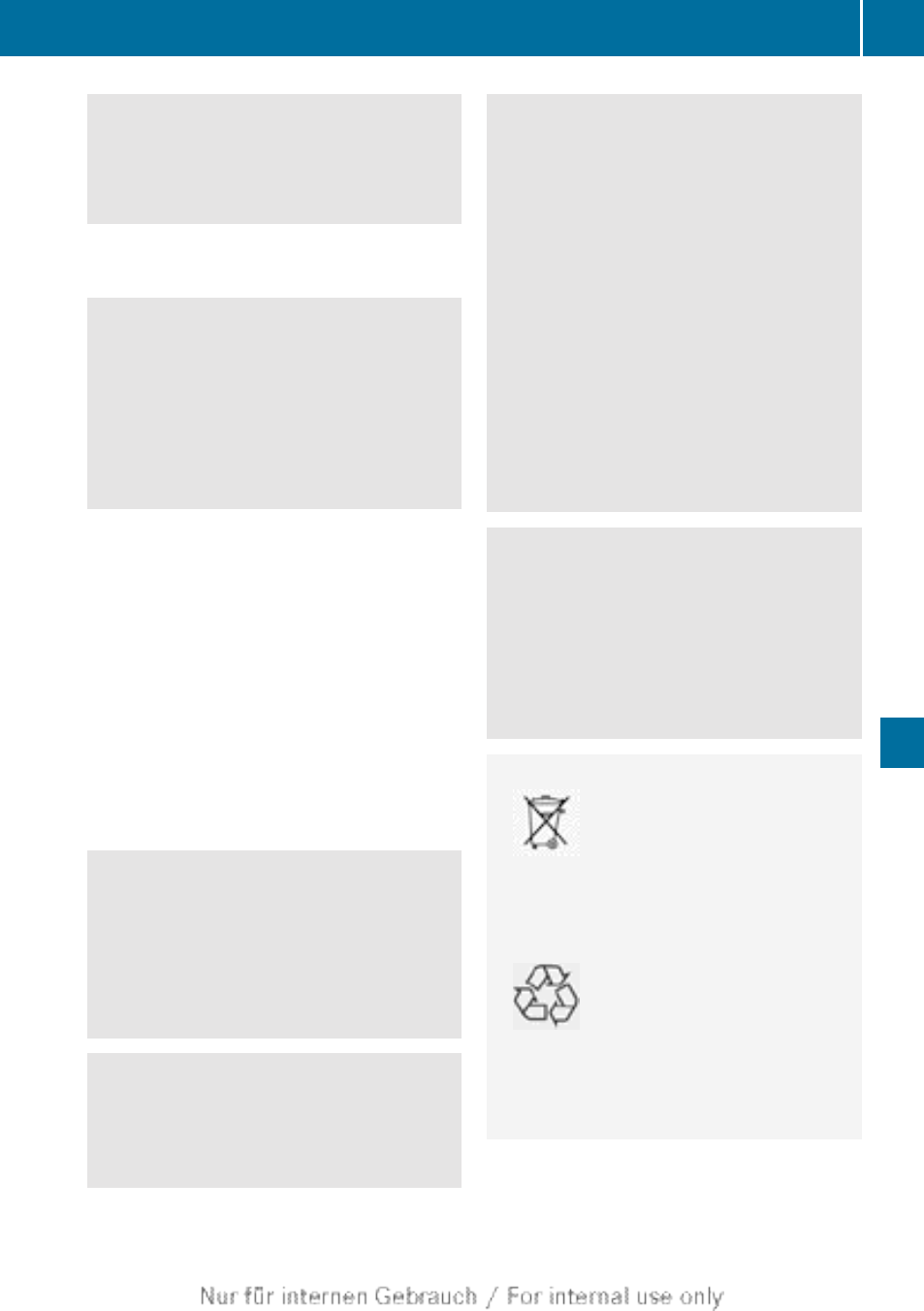Breakdown assistance, Battery (vehicle) – Mercedes-Benz 2013 C Class Coupe User Manual
Page 337

In the event of a short circuit or similar situa-
tion, inform a qualified specialist workshop
immediately. Do not drive any further. You
should have all work involving the battery car-
ried out at a qualified specialist workshop.
For further information about ABS
(
G
WARNING
Electrostatic build-up can lead to the creation
of sparks, which could ignite the highly explo-
sive gases of a battery. There is a risk of an
explosion.
Before handling the battery, touch the vehicle
body to remove any existing electrostatic
build-up.
The highly flammable gas mixture is created
while the battery is charging and when jump-
starting.
Always make sure that neither you nor the
battery is electrostatically charged. Electro-
static charge is created, for example:
R
by wearing synthetic fibre clothing
R
due to friction between clothing and the
seat
R
when you pull or push the battery across
carpet or other synthetic materials
R
when you rub the battery with a cloth
G
WARNING
Battery acid is caustic. There is a risk of injury.
Avoid contact with the skin, eyes or clothing.
Do not inhale any battery gases. Do not lean
over the battery. Keep children away from
batteries. Wash battery acid immediately with
water and seek medical attention.
G
WARNING
During the charging process, a battery produ-
ces hydrogen gas. If a short circuit occurs or
sparks are created, the hydrogen gas can
ignite. There is a risk of an explosion.
R
Make sure that the positive terminal of a
connected battery does not come into con-
tact with vehicle parts.
R
Never place metal objects or tools on a bat-
tery.
R
It is important that you observe the descri-
bed order of the battery terminals when
connecting and disconnecting a battery.
R
When jump-starting, make sure that the
battery poles with identical polarity are
connected.
R
It is particularly important to observe the
described order when connecting and dis-
connecting the jump leads.
R
Never connect or disconnect the battery
terminals while the engine is running.
G
WARNING
During charging and jump-starting, explosive
gases can escape from the battery. There is a
risk of an explosion.
Particularly avoid fire, naked flames, creating
sparks and smoking. Ensure there is sufficient
ventilation while charging and jump-starting.
Do not lean over a battery.
H
Environmental note
Batteries contain pollutants.
It is illegal to dispose of them
with the household rubbish.
They must be collected sep-
arately and disposed of in an
environmentally responsible
recycling system.
Dispose of batteries in an
environmentally responsible
manner. Take discharged
batteries to a qualified spe-
cialist workshop or to a col-
lection point for used batter-
ies.
!
Have the battery checked regularly at a
qualified specialist workshop.
Battery (vehicle)
335
Breakdown assistance
Z